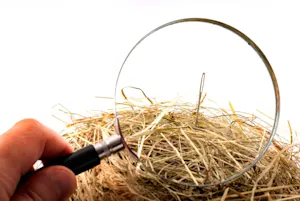What Makes This Word Tick
The word "aerate" is a dynamic little verb that means to introduce air into a substance. You might aerate your lawn, wine, or even a fish tank! Depending on the context, it can evoke images of gardeners poking holes in the soil or wine enthusiasts swirling their glasses to enhance the aromas.
If Aerate Were a Person…
If aerate were a person, it might be a chatty, outgoing socialite always trying to breathe new life into any situation. It would be the friend who insists on opening the windows at every opportunity to let in that fresh breeze. Always invigorating and never dull, aerate would be the life of the party—or the garden!
How This Word Has Changed Over Time
Aerate hasn't veered too far from its roots over time. It’s always had that airy essence to it. Originally stemming from the Latin word "aer," which means "air," its history is filled with the fresh, open feel we associate with well-ventilated spaces and lively conversations.
Old Sayings and Proverbs That Use Aerate
While "aerate" itself isn’t commonly found in proverbs, the concept of fresh air—a cousin to aeration—certainly is. You might think of “a breath of fresh air” to describe something new and revitalizing. Aerate plays a silent but significant role in these expressions.
Surprising Facts About Aerate
Did you know that aerating wine is often more about olfactory pleasure than taste? When you aerate wine, the oxygen transforms certain compounds, releasing those lovely bouquet smells. Aerating soil, on the other hand, helps roots grow deeper, improving the health of your entire lawn.
Out and About With This Word
From kitchens to golf courses, "aerate" finds its niche in various places. You’ll hear it in horticulture, restaurant kitchens, or even in aquarium maintenance. Each time, it brings a little bit of freshness and efficiency to the task.
Pop Culture Moments Where Aerate Was Used
While not a Hollywood A-lister, "aerate" might sneak into a wine aficionado film as characters discuss the importance of letting a vintage breathe. Perhaps it's also implicit in scenes where characters tend to gardens for that metaphorical “new beginning.”
The Word in Literature
A word like "aerate" might not be splashed across pages of romance novels, but you might encounter it in more technical writing or manuals, especially in gardening guides or culinary texts. Its tone is practical, refreshing, and often associated with nurturing.
Moments in History with Aerate
During the Victorian era, when lawns became symbols of status, aeration became essential for impeccable grounds. Even the most picturesque formal gardens owe some of their beauty to proper aeration practices, making this a word that’s silently stood the test of time.
This Word Around the World
Internationally, the concept of aeration translates into many contexts, like in French viticulture with "aérer" for decanting wine, or in Asian gardening techniques that emphasize the importance of air flow in bonsai soil. Each culture brings its own flavor to the concept.
Where Does It Come From?
Aerate finds its etymological roots in Latin, where "aer" means "air." The word evolved through Old French to Middle English, retaining the light, bubbly connotations we recognize today.
How People Misuse This Word
Some might mistakenly use "aerate" when they mean "ventilate," particularly in contexts around providing fresh air to spaces rather than substances like soil or liquids. This small nuance can catch even the best of us off guard.
Words It’s Often Confused With
Ventilate: Introducing air to a space, rather than a substance.
Infuse: Involving liquid being steeped, not just air.
Carbonate: Adding carbon dioxide to liquids, whereas aeration involves regular air.
Additional Synonyms and Antonyms
Synonyms for aerate include ventilate, oxygenate, and freshen. On the opposite end, words like suffocate, stifle, and seal serve as antonyms, blocking the life-giving flow of air.
Want to Try It Out in a Sentence?
To maintain a lush and healthy lawn, it is essential to aerate the soil regularly, allowing roots to thrive and moisture to penetrate deeply.
















